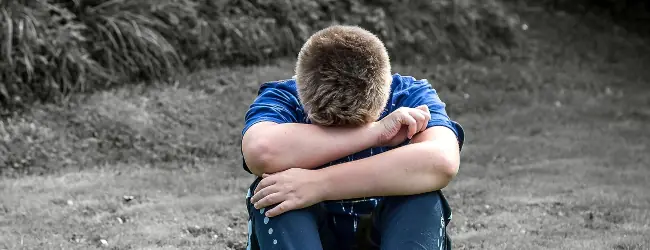I have talked about how to use empathy for highly empathic people. That mental feature often bothers us if we don’t know how to use it appropriately. Today, I will explain one way to get out of a bad environment for empathic people.
How to leave a bad environment
Several days ago, I saw a news topic. It was news that a young apprentice doctor had committed suicide due to his hard work. Too much work without rest or sleep drove him to suicide. That topic also mentioned why he didn’t quit that job before committing suicide.
We sometimes cannot get out of an environment, even if we feel rewardless. No matter how hard we do our best and sacrifice our lives, our surroundings are never satisfied. That exhausts us.

However, sometimes we cannot stop it. We stick to that work until something important in our lives breaks down. After leaving the environment, we sometimes wondered why we had been so attached to such a worthless thing.
Today, I will explain the mental logic of why it is hard to get out of a bad environment if we have highly empathic natures. That logic tells us how to stop and escape from such rewardless hard labor.
A feature of empathy: trying to avoid causing trouble
The logic is simple. That is because the last thing we want is to cause trouble for others if we have highly empathic natures.
Empathy is for the sake of helping weak people. With empathy, we can feel others’ sadness and lend our hands to them.

In helping someone, we must avoid causing trouble to the other person because help and trouble are opposites. If we bother him more to help him, the help makes no sense. That is why we try to avoid causing trouble to the other person as much as possible, especially when we want to help someone. Avoiding trouble is one form of empathy.
In other words, although empathy is a precious power, it can easily hurt us. It makes the owner choose to hurt themselves rather than hurt anyone else to help someone.
Misunderstanding of who to help
However, we sometimes misunderstand whom we should help. Our surroundings sometimes pretend to be victims to control us, even though they are not weak people. For example, they often have a higher status than us but insist our existence hurts them or causes trouble for them.
That gives us an illusion of guilt and makes us try to avoid it, so we come to follow their wants as much as possible. In other words, they are taking advantage of our empathy to satisfy their greed.

That is the factor that prevents us from leaving our poor environment because we feel we will bother others if we do it. They frequently criticize our lack of ability to fulfill their wants. Even if we take a little rest, they accuse us. That criticism eliminates the option to leave the environment. That is why we cannot leave the environment, even if we are the weakest person in that place.
This is an incorrect way to use our empathy. Our self-sacrifice hurts us without reward.
Perhaps the young apprentice doctor I introduced at the top of this article had been in that situation. Doctors look stronger than patients, but patients often have a higher status than doctors. Perhaps that misunderstanding and empathy prevented him from quitting the job.
One way to escape from a rewardless environment
That logic tells us how to stop and escape from such rewardless circumstances.
One way is to find appropriate people to help. If we notice them, we will feel like lending our hands to weaker people and think it is absurd to assist stronger people than us. If we are helping stronger people, there should be other people who want to do it instead of us. We will understand that we should leave it to people who want to do it.

That allows us to leave the environment, even if we give them a little trouble. They have many substitutes for us. In addition, we are not afraid of refusal from stronger people because we understand it is a process to help weak people that only we can do. Empathy gives us the power to endure the criticism.
This is the correct way to use empathy. Our self-sacrifice allows us to help weak people and brings us rewards. Weak people’s happiness makes us happy.
In this case, our sensitivity to avoid bothering others will be a great talent because we can treat weak people appropriately. To the average person, perhaps it would seem like a prominent ability because we can understand what they want without words. That is one of the great features of empathic people.
Conclusion
That is why it is hard to get out of a bad environment if we have highly empathic natures.
The cause is the features of empathy that we try to avoid causing trouble to others. If we notice weak people, we will find it absurd to assist stronger people.
That knowledge might allow us to escape from rewardless, hard labor.
Thank you for reading this article. I hope to see you in the next one.


